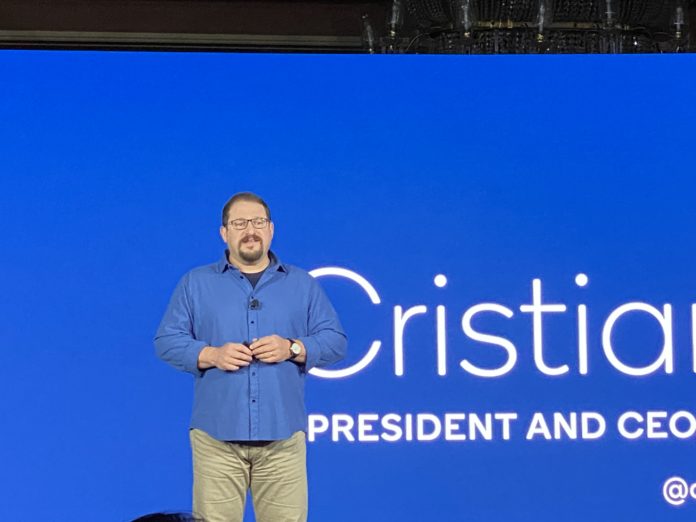Qualcomm updates on diversification strategy, including automotive, XR, IoT and PCs
Ahead of an Automotive Investor Day event on Sept. 22, Qualcomm CEO Cristiano provided an update on the company’s growth into the automotive sector—along with discussion of market trends around extended reality (XR), the industrial internet of things, and personal computers (PCs)—during the Goldman Sachs Communacopia + Technology Conference. Bottomline, Amon said of Qualcomm’s surge in automotive business, “Qualcomm is really winning the future of the auto semiconductor industry.”
Qualcomm’s diversification strategy, which the company sees opening up a potential $700 billion addressable market in the coming years, is focused on the “connected intelligent edge.” The idea is to apply core expertise developed for mobile (connectivity, compute, and artificial intelligence), to more types of cloud-connected devices.
Amon described it like this: “Where we are right now is really just changing Qualcomm from a communications company for the mobile industry into a connected processor company for the intelligent edge. We’re seeing a lot of growth opportunities…we’re no longer bound by a single end market…That brought a lot of excitement back to the company.”
Specific to automotive, Qualcomm reported in third quarter financials on July 27, a $19 billion automotive design win pipeline, up $3 billion from the previous quarter. The company has announced major deals with Volkswagen Group, BMW, Hyundai, Volvo, Renault, Honda, Stellantis and several others. Relevant products include the Snapdragon Ride advanced driver-assistance system (ADAS) platform, Snapdragon Auto Connectivity, Snapdragon Cockpit, car-to-cloud services, C-V2X and a range of positioning solutions.
“Of all the opportunities for Qualcomm in diversification,” Amon said, “I think the one we’re having the fastest in terms of winning the future silicon in that industry is the automotive.” He said the company’s differentiation is that it’s not providing a point solution but rather, “We’re providing a digital chassis platform and that concept is resonating with the car companies.”
Given the breadth of automotive offerings and ability for customization, Amon said he sees a multi-year path toward “multiple thousands of dollars” of content in a single vehicle. “We came up with a solution that scales up and down even to the point that, in some cases, you can use the same silicon to run ADAS and infotainment.”
Qualcomm “very bullish” on XR outlook
The XR umbrella covers virtual reality, augmented reality and mixed reality. As Amon said during the conference, the company is “very bullish” on the future of this segment. “I think we’re just at the very beginning of secular growth.”
One proof point he threw out is the success of Meta’s Oculus Quest 2 which reportedly passed the 10 million units shipped mark at the end of 2021, fueling the growth of the associated developer ecosystem. During the recent IFA event, Qualcomm and Meta announced a long-term partnership.
Amon also pointed out that because platforms like Meta’s aren’t available in China, there’s a big market opportunity to be cultivated. To that end, Qualcomm is working with TikTok parent company ByteDance on XR hardware, software, dev kits and more.
On the enterprise side, Amon described that as a nearer-term opportunity for augmented reality as compared to the consumer space. This will first likely be an AR-based augmentation of a PC experience—think multiple AR “screens” viewed through a glasses-type device like Lenovo’s ThinkReality A3.
Speaking of PCs, Qualcomm has been pressing forward with its Snapdragon-based compute platform and partnership with Microsoft for Windows on Snapdragon. Amon noted that hybrid works trends developed during the pandemic help push the PC market towards Qualcomm’s fundamental areas of expertise. “For us it’s a brand new market. We don’t need to plan for a lot of share in this market to be very meaningful…We’re going after the performance leadership for next-generation PCs.”
Based on its acquisition of Nuvia, Qualcomm is targeting custom CPUs in the second half of 2023. Qualcomm and Nuvia are being sued by Arm which alleges violations of license agreements.
Big picture, Amon said, “What you’re going to see Qualcomm doing is probably looking into balance in the ability to continue to return capital to shareholders, but also preserve our ability to take advantage of this environment and look at acquisitions that’s going to accelerate our auto and IoT; very focused on auto and IoT.”

